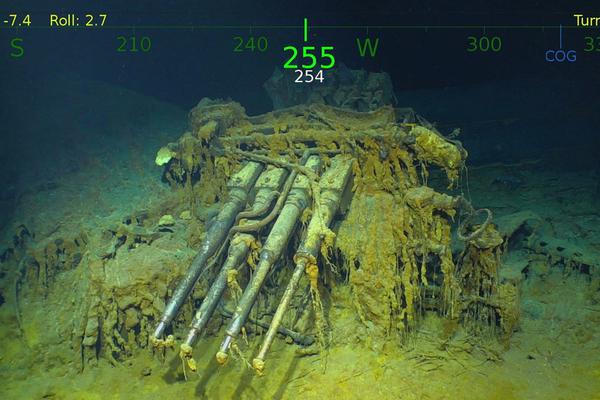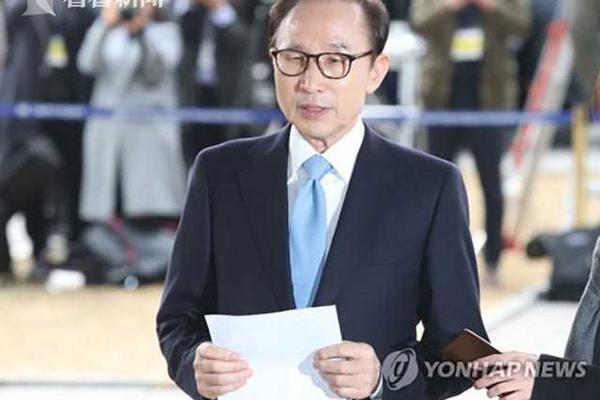
1. The five functions of the operating system are processor management, memory management, device management, file management and job management. Processor management The most basic function of processor management is to process interrupt events. After configuring the operating system, various events can be processed.
2. The main function of the computer operating system is process management, and its work is mainly process scheduling. In the case of a single user and a single taskNext, the processor is only monopolized by one user's task, and the process management work is very simple.
3. Operating System (abbreviation: OS) is a group of interrelated system software programs that supervise and control computer operation, use and run hardware, software resources and provide public services to organize user interaction.
4. Five major management functions of the operating system: (1) Job management: including tasks, interface management, human-computer interaction, graphical interface, voice control and virtual reality, etc. ( 2) File management: also known as information management. ( 3) Storage management: The essence is the management of storage "space", which mainly refers to the management of the main memory.
Any information system has five basic functions, namely: information collection and recording (input); information storage; information processing; information transmission; information output .
According to the functional introduction of the information system, the information system has five basic functions: input, storage, processing, output and control. Different functions have different functions, such as input function: the input function of the information system is determined by the purpose to be achieved by the system, the ability of the system and the permission of the information environment.
Five basic functions of the information system: input, storage, processing, output and control. Input function: The input function of the information system is determined by the purpose to be achieved by the system, the ability of the system and the permission of the information environment.Storage function: Storage function refers to the ability of the system to store various information and data. Mainly including: statistical functions.
The operating system has five functions: processor management: mainly controls and manages the work of the CPU. Storage management: mainly allocate and manage memory. Device management: mainly manage basic input and output devices. File management: responsible for the organization, storage, operation and protection of computer files.
The functions of the computer operating system include: processor management, memory management, device management, file management, job management and other functional modules. Processor management. The most basic function of processor management is to handle interrupt events. The processor can only detect interrupt events and generate interrupts and cannot process them.
The main function of the computer operating system is process management, and its main work is process scheduling. In the case of a single user and a single task, the processor is only monopolized by one user's task, and the work of process management is very simple.
The main functions of the operating system are process and processor management, job management, storage management, device management and file management, as follows: process and processor management. Because the execution of the program must rely on the processor, only one program flow can be processed and executed at any time. Homework management.
I) Processor management The most basic function of processor management is to handle interrupt events. The processor can only detect interrupt events and generate interrupts, and cannot handle these interrupt events. After configuring the operating system, all types of events can be handled.Another function of processor management is processor scheduling.
Five management functions of the operating system: job management: including tasks, interface management, human-computer interaction, graphical interface, voice control and virtual reality, etc. File management: also known as information management. Storage management: The essence is the management of storage "space", which mainly refers to the management of the main memory.

The storage management function of the operating system is to manage memory resources. It mainly realizes memory allocation and recovery, storage protection and memory expansion. The device management of the device management operating system is responsible for allocating and recycling external devices, and controlling external devices to operate according to the requirements of user programs.
The functions of the computer operating system include: processor management, memory management, device management, file management, job management and other functional modules. Processor management. The most basic function of processor management is to handle interrupt events. The processor can only detect interrupt events and generate interrupts and cannot process them.
The five functions of the operating system are processor management, memory management, device management, file management and job management.Processor management The most basic function of processor management is to process interrupt events. After configuring the operating system, various events can be processed.
UEFA Champions League standings-APP, download it now, new users will receive a novice gift pack.
1. The five functions of the operating system are processor management, memory management, device management, file management and job management. Processor management The most basic function of processor management is to process interrupt events. After configuring the operating system, various events can be processed.
2. The main function of the computer operating system is process management, and its work is mainly process scheduling. In the case of a single user and a single taskNext, the processor is only monopolized by one user's task, and the process management work is very simple.
3. Operating System (abbreviation: OS) is a group of interrelated system software programs that supervise and control computer operation, use and run hardware, software resources and provide public services to organize user interaction.
4. Five major management functions of the operating system: (1) Job management: including tasks, interface management, human-computer interaction, graphical interface, voice control and virtual reality, etc. ( 2) File management: also known as information management. ( 3) Storage management: The essence is the management of storage "space", which mainly refers to the management of the main memory.
Any information system has five basic functions, namely: information collection and recording (input); information storage; information processing; information transmission; information output .
According to the functional introduction of the information system, the information system has five basic functions: input, storage, processing, output and control. Different functions have different functions, such as input function: the input function of the information system is determined by the purpose to be achieved by the system, the ability of the system and the permission of the information environment.
Five basic functions of the information system: input, storage, processing, output and control. Input function: The input function of the information system is determined by the purpose to be achieved by the system, the ability of the system and the permission of the information environment.Storage function: Storage function refers to the ability of the system to store various information and data. Mainly including: statistical functions.
The operating system has five functions: processor management: mainly controls and manages the work of the CPU. Storage management: mainly allocate and manage memory. Device management: mainly manage basic input and output devices. File management: responsible for the organization, storage, operation and protection of computer files.
The functions of the computer operating system include: processor management, memory management, device management, file management, job management and other functional modules. Processor management. The most basic function of processor management is to handle interrupt events. The processor can only detect interrupt events and generate interrupts and cannot process them.
The main function of the computer operating system is process management, and its main work is process scheduling. In the case of a single user and a single task, the processor is only monopolized by one user's task, and the work of process management is very simple.
The main functions of the operating system are process and processor management, job management, storage management, device management and file management, as follows: process and processor management. Because the execution of the program must rely on the processor, only one program flow can be processed and executed at any time. Homework management.
I) Processor management The most basic function of processor management is to handle interrupt events. The processor can only detect interrupt events and generate interrupts, and cannot handle these interrupt events. After configuring the operating system, all types of events can be handled.Another function of processor management is processor scheduling.
Five management functions of the operating system: job management: including tasks, interface management, human-computer interaction, graphical interface, voice control and virtual reality, etc. File management: also known as information management. Storage management: The essence is the management of storage "space", which mainly refers to the management of the main memory.

The storage management function of the operating system is to manage memory resources. It mainly realizes memory allocation and recovery, storage protection and memory expansion. The device management of the device management operating system is responsible for allocating and recycling external devices, and controlling external devices to operate according to the requirements of user programs.
The functions of the computer operating system include: processor management, memory management, device management, file management, job management and other functional modules. Processor management. The most basic function of processor management is to handle interrupt events. The processor can only detect interrupt events and generate interrupts and cannot process them.
The five functions of the operating system are processor management, memory management, device management, file management and job management.Processor management The most basic function of processor management is to process interrupt events. After configuring the operating system, various events can be processed.
UEFA Champions League live streaming free
author: 2025-01-10 11:07 100 free bonus casino no deposit GCash
100 free bonus casino no deposit GCash
182.23MB
Check UEFA Champions League
UEFA Champions League
999.64MB
Check Casino Plus app
Casino Plus app
186.77MB
Check Hearthstone arena class win rates reddit
Hearthstone arena class win rates reddit
596.36MB
Check Hearthstone arena
Hearthstone arena
557.13MB
Check Casino Plus free 100
Casino Plus free 100
527.17MB
Check Arena plus APK
Arena plus APK
759.68MB
Check Hearthstone Wild Decks
Hearthstone Wild Decks
421.58MB
Check Casino Plus free 100
Casino Plus free 100
369.79MB
Check Casino free 100 no deposit
Casino free 100 no deposit
164.19MB
Check UEFA Champions League live streaming free
UEFA Champions League live streaming free
634.42MB
Check DigiPlus
DigiPlus
489.66MB
Check Hearthstone Arena win rate
Hearthstone Arena win rate
326.86MB
Check Walletinvestor digi plus
Walletinvestor digi plus
772.31MB
Check Europa League app
Europa League app
265.66MB
Check Hearthstone Arena win rate
Hearthstone Arena win rate
843.63MB
Check Arena Plus login
Arena Plus login
456.96MB
Check Bingo Plus stock
Bingo Plus stock
189.94MB
Check Casino redeem
Casino redeem
684.99MB
Check UEFA TV
UEFA TV
886.75MB
Check DigiPlus
DigiPlus
811.98MB
Check Hearthstone deck
Hearthstone deck
399.84MB
Check Casino Plus app
Casino Plus app
372.19MB
Check UEFA Champions League live streaming free
UEFA Champions League live streaming free
145.66MB
Check Hearthstone arena class win rates reddit
Hearthstone arena class win rates reddit
556.93MB
Check Hearthstone arena class win rates reddit
Hearthstone arena class win rates reddit
239.36MB
Check Champions League
Champions League
947.92MB
Check Hearthstone Arena class tier list 2024
Hearthstone Arena class tier list 2024
783.71MB
Check bingo plus update today Philippines
bingo plus update today Philippines
362.11MB
Check DigiPlus
DigiPlus
451.72MB
Check DigiPlus Philippine
DigiPlus Philippine
172.37MB
Check Arena plus APK
Arena plus APK
421.78MB
Check Arena Plus login
Arena Plus login
648.59MB
Check TNT Sports
TNT Sports
666.36MB
Check DigiPlus Philippine
DigiPlus Philippine
631.12MB
Check Hearthstone arena deck Builder
Hearthstone arena deck Builder
352.22MB
Check
Scan to install
UEFA Champions League standings to discover more
Netizen comments More
2624 Walletinvestor digi plus
2025-01-10 12:50 recommend
2497 casino plus free 100
2025-01-10 12:39 recommend
1893 DigiPlus stock
2025-01-10 12:27 recommend
1633 UEFA Champions League live streaming free
2025-01-10 10:49 recommend
1944 100 free bonus casino no deposit GCash
2025-01-10 10:22 recommend